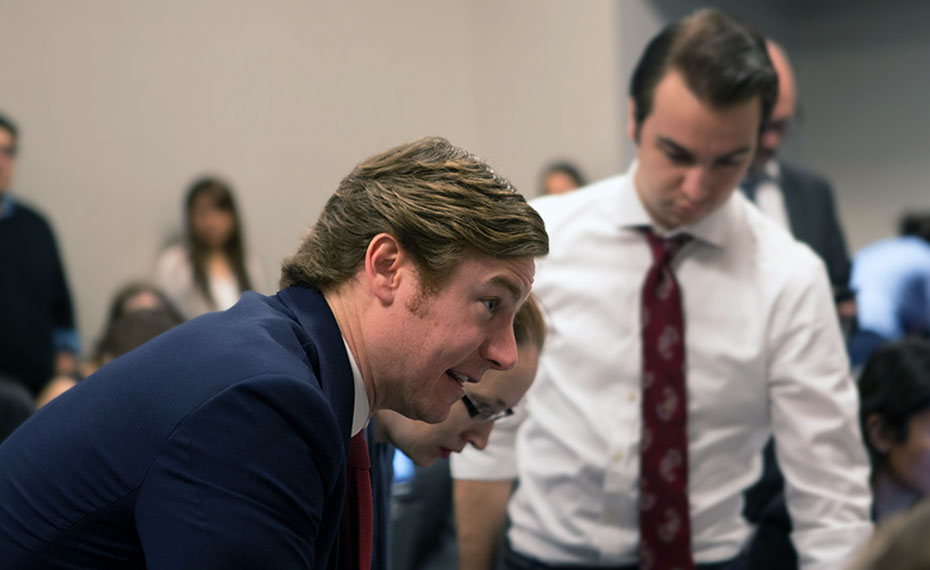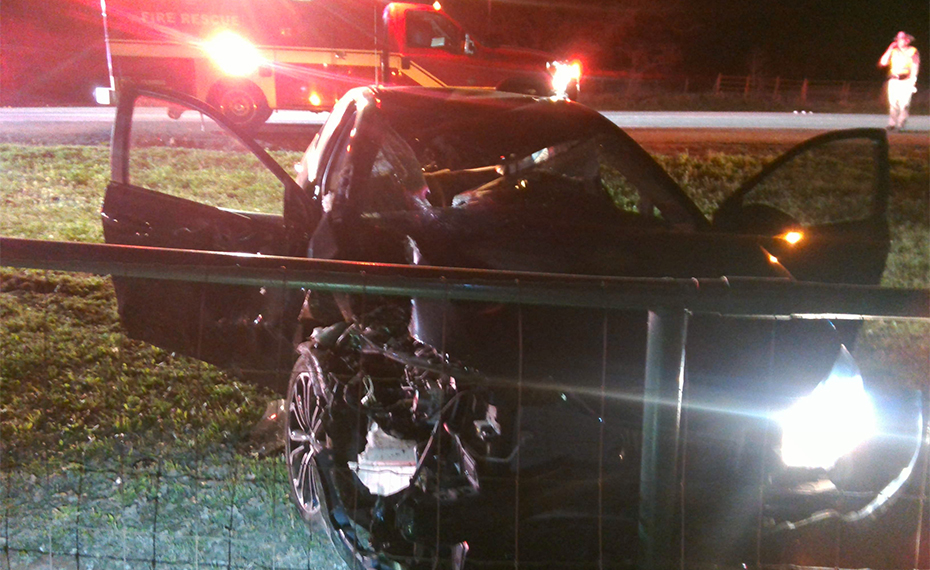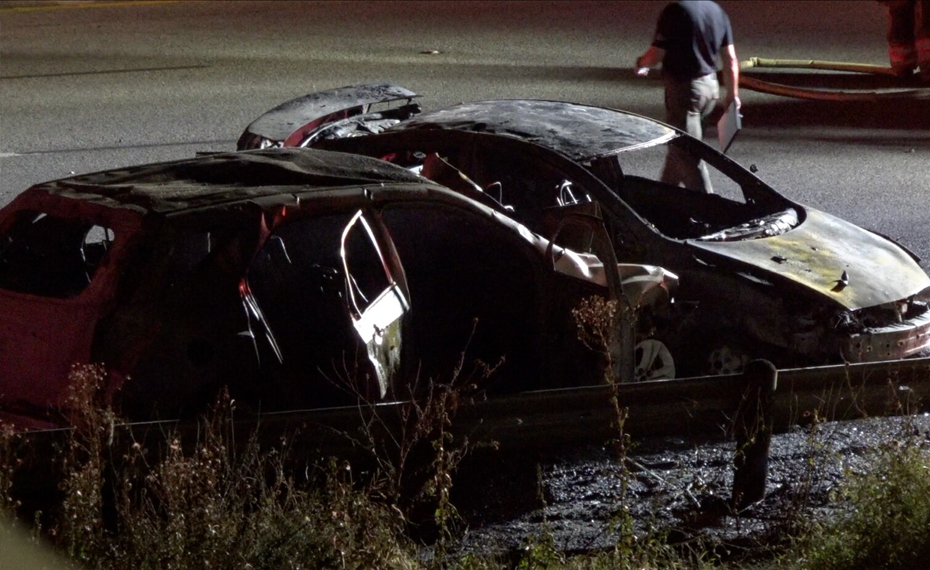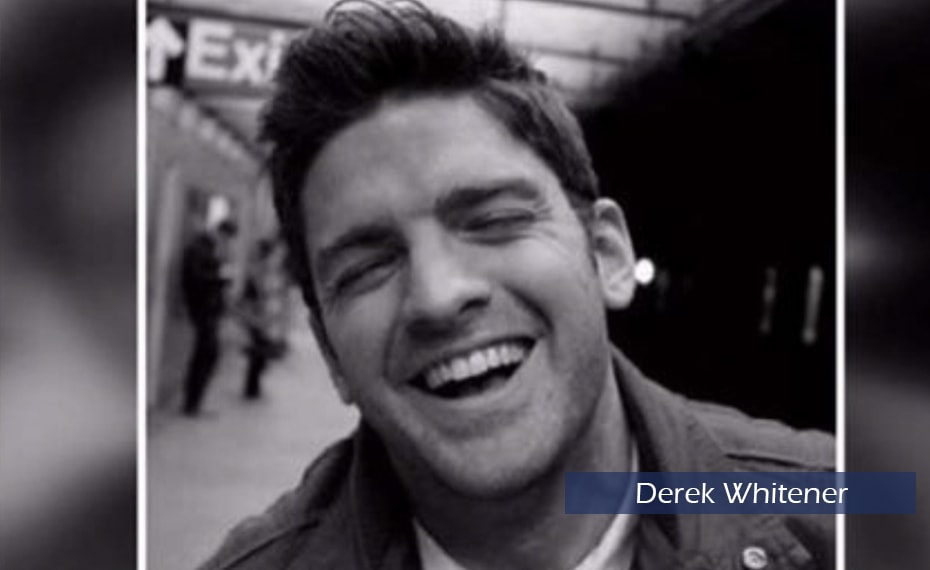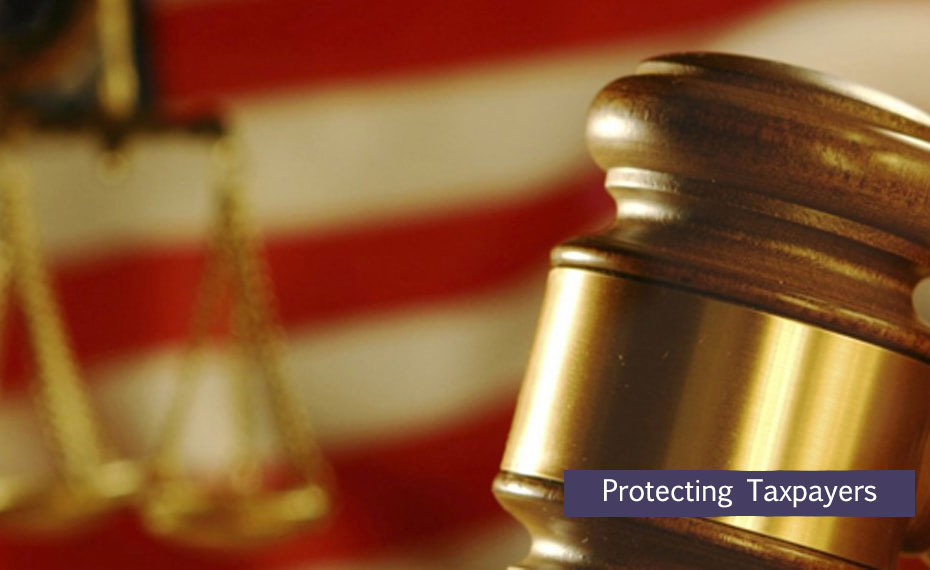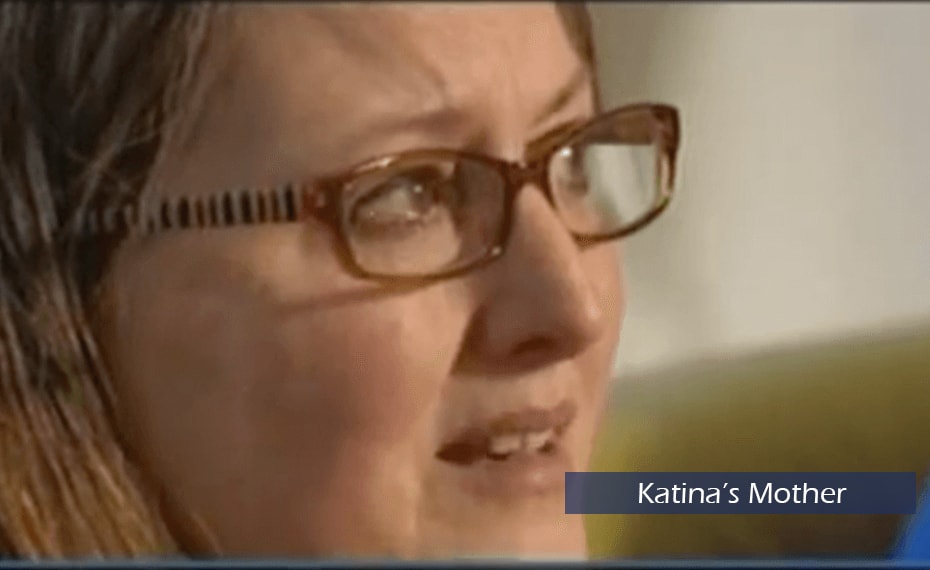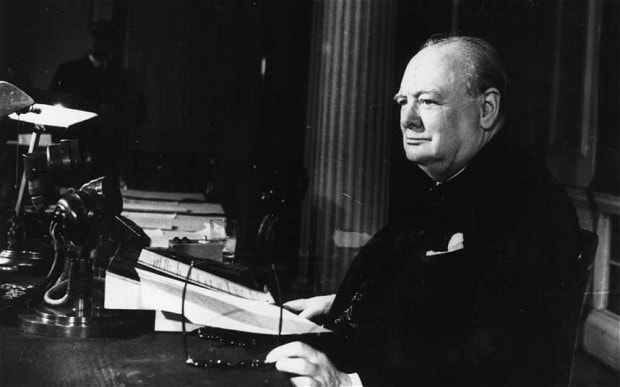
Their Finest Hour – Lessons in Leadership
Wingo, Paul. “Their Finest Hour - Lessons in Leadership.” Dallas Bar Association Headnotes, vol. 44, no. 10, Oct. 2019, pp. 16–16. Litigation is our civilized way of conducting war. It is oftentimes a bruising and brutal affair. Late nights, early mornings, high stress, the strain on personal relationships, these are just some of the realities of an aggressive litigation practice. When the stakes are high, litigants simply do not care about what is going on in your personal life. Effective leadership is critical in high-stakes advocacy when everything is on the line for your clients. It is the difference between a steely-eyed team ready to march into battle [...]

Their Finest Hour – Lessons in Leadership
Wingo, Paul. “Their Finest Hour - Lessons in Leadership.” Dallas Bar Association Headnotes, vol. 44, no. 10, Oct. 2019, pp. 16–16. Litigation is our civilized way of conducting war. It is oftentimes a bruising and brutal affair. Late nights, early mornings, high stress, the strain on personal relationships, these are just some of the realities of an aggressive litigation practice. When the stakes are high, litigants simply do not care about what is going on in your personal life. Effective leadership is critical in high-stakes advocacy when everything is on the line for your clients. It is the difference between a steely-eyed team ready to march into battle [...]
Wingo, Paul. “Their Finest Hour – Lessons in Leadership.” Dallas Bar Association Headnotes, vol. 44, no. 10, Oct. 2019, pp. 16–16.
Litigation is our civilized way of conducting war. It is oftentimes a bruising and brutal affair. Late nights, early mornings, high stress, the strain on personal relationships, these are just some of the realities of an aggressive litigation practice. When the stakes are high, litigants simply do not care about what is going on in your personal life. Effective leadership is critical in high-stakes advocacy when everything is on the line for your clients. It is the difference between a steely-eyed team ready to march into battle and a broken line that is fumbling in retreat. Lessons in leadership are crucial for us as lawyers. We can look to how one leader faced great adversity for guidance.
Winston Churchill was a flawed human like all of us. He wasn’t a saint. He was not an oracle. He was a bald, obese man who drank too much and took multiple baths a day. But he understood that times of deep adversity are an opportunity to heed the greatest calls of leadership. We should always remember the example he set for us on June 18, 1940, when he showed us that extreme adversity is a chance to find what is best about ourselves.
Two weeks prior, 338,000 Allied soldiers were desperately evacuated from Dunkirk in a hastily assembled civilian armada. Four days prior, the world had seen Nazi soldiers marching past the Arc de Triomphe after the surrender of Paris. The British Empire, which had spanned centuries, was precariously teetering on the edge of oblivion. The barbarians were quite literally at the gate. Simply put, the stakes could not have been higher for the new Prime Minister as he stood to address the House of Commons on June 18, 1940. After a brief recitation of how dire the situation was, Churchill moved to rally the troops:
“There are many who would hold an inquest in the House of Commons on the conduct of the Governments… They seek to indict those who were responsible for the guidance of our affairs… Of this, I am quite sure, that if we open a quarrel between the past and the present, we shall find that we have lost the future.”
Churchill acknowledged that all the leaders, including himself, had fallen short leading up to their current dire situation. But he stopped it there. He insisted on absolution for everyone’s collective sins, so they could move forward to face the challenge together.
It’s easy for us to dismiss the importance of forgiveness in the rallying call. The human experience is never wanting for individual shortcomings. When bombs are falling in a litigation practice, it is easy to start assigning blame. We all fall short at times. If you wait for a blameless team you never rise to the challenge of the moment. Acknowledge mistakes but give a path to forgiveness. Leadership requires reconciling the past with the present, so you may meet the challenges of today. Churchill stated:
“I do not at all underrate the severity of the ordeal which lies before us, but I believe our countrymen will show themselves capable of standing up to it… Much will depend upon this; every man and every woman will have the chance to show the finest qualities…and render the highest service to their cause.”
Churchill knew Britain’s refusal to capitulate to Hitler’s demands meant an imminent German bombing campaign and a potential land invasion. Instead of hiding from the dark days ahead, he made a call for his people to rise to the highest of their potential.
So when the settlement talks have cratered and you are heading for a difficult trial—that is the time to truly make a call to service. Often we assume everyone is a professional and they are on board. An effective leader does not assume; they confirm and engage their team, so they are ready for the battle ahead. In Churchill’s words, “Let us, therefore, brace ourselves to our duties, and so bear ourselves that if the British Empire and its Commonwealth last for a thousand years, men will still say, ‘This was their finest hour.’”
Litigation can be one of the most rewarding experiences in modern life. The sheer agony and ecstasy of it let us explore some of the deepest recesses of our souls. If you want to be successful, you simply must let go and give it all you’ve got. Find your finest hours. HN
Wingo, Paul. “Their Finest Hour – Lessons in Leadership.” Dallas Bar Association Headnotes, vol. 44, no. 10, Oct. 2019, pp. 16–16.
Litigation is our civilized way of conducting war. It is oftentimes a bruising and brutal affair. Late nights, early mornings, high stress, the strain on personal relationships, these are just some of the realities of an aggressive litigation practice. When the stakes are high, litigants simply do not care about what is going on in your personal life. Effective leadership is critical in high-stakes advocacy when everything is on the line for your clients. It is the difference between a steely-eyed team ready to march into battle and a broken line that is fumbling in retreat. Lessons in leadership are crucial for us as lawyers. We can look to how one leader faced great adversity for guidance.
Winston Churchill was a flawed human like all of us. He wasn’t a saint. He was not an oracle. He was a bald, obese man who drank too much and took multiple baths a day. But he understood that times of deep adversity are an opportunity to heed the greatest calls of leadership. We should always remember the example he set for us on June 18, 1940, when he showed us that extreme adversity is a chance to find what is best about ourselves.
Two weeks prior, 338,000 Allied soldiers were desperately evacuated from Dunkirk in a hastily assembled civilian armada. Four days prior, the world had seen Nazi soldiers marching past the Arc de Triomphe after the surrender of Paris. The British Empire, which had spanned centuries, was precariously teetering on the edge of oblivion. The barbarians were quite literally at the gate. Simply put, the stakes could not have been higher for the new Prime Minister as he stood to address the House of Commons on June 18, 1940. After a brief recitation of how dire the situation was, Churchill moved to rally the troops:
“There are many who would hold an inquest in the House of Commons on the conduct of the Governments… They seek to indict those who were responsible for the guidance of our affairs… Of this, I am quite sure, that if we open a quarrel between the past and the present, we shall find that we have lost the future.”
Churchill acknowledged that all the leaders, including himself, had fallen short leading up to their current dire situation. But he stopped it there. He insisted on absolution for everyone’s collective sins, so they could move forward to face the challenge together.
It’s easy for us to dismiss the importance of forgiveness in the rallying call. The human experience is never wanting for individual shortcomings. When bombs are falling in a litigation practice, it is easy to start assigning blame. We all fall short at times. If you wait for a blameless team you never rise to the challenge of the moment. Acknowledge mistakes but give a path to forgiveness. Leadership requires reconciling the past with the present, so you may meet the challenges of today. Churchill stated:
“I do not at all underrate the severity of the ordeal which lies before us, but I believe our countrymen will show themselves capable of standing up to it… Much will depend upon this; every man and every woman will have the chance to show the finest qualities…and render the highest service to their cause.”
Churchill knew Britain’s refusal to capitulate to Hitler’s demands meant an imminent German bombing campaign and a potential land invasion. Instead of hiding from the dark days ahead, he made a call for his people to rise to the highest of their potential.
So when the settlement talks have cratered and you are heading for a difficult trial—that is the time to truly make a call to service. Often we assume everyone is a professional and they are on board. An effective leader does not assume; they confirm and engage their team, so they are ready for the battle ahead. In Churchill’s words, “Let us, therefore, brace ourselves to our duties, and so bear ourselves that if the British Empire and its Commonwealth last for a thousand years, men will still say, ‘This was their finest hour.’”
Litigation can be one of the most rewarding experiences in modern life. The sheer agony and ecstasy of it let us explore some of the deepest recesses of our souls. If you want to be successful, you simply must let go and give it all you’ve got. Find your finest hours. HN

